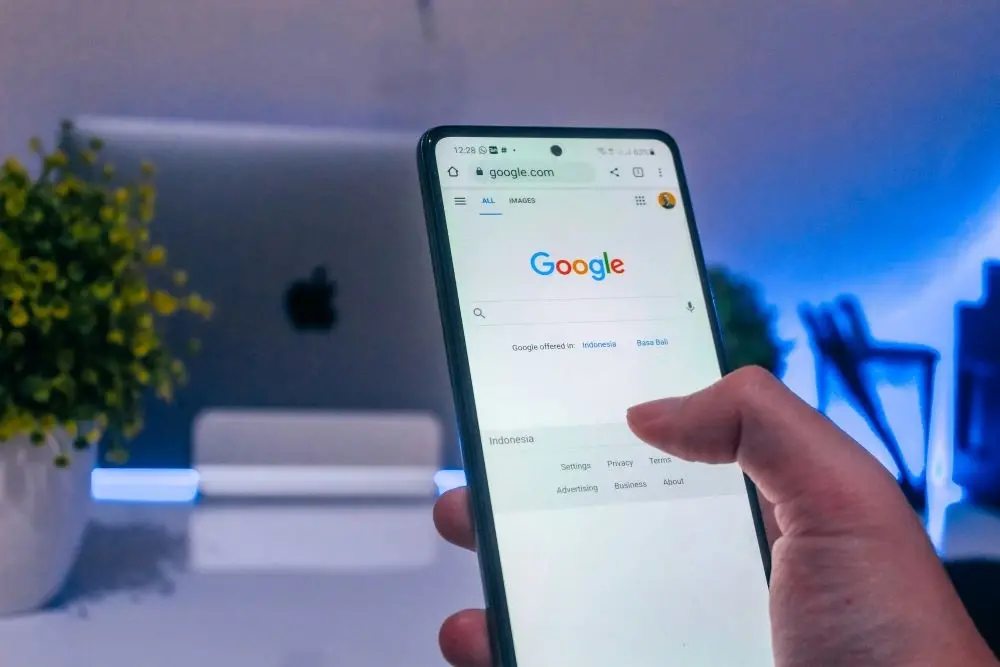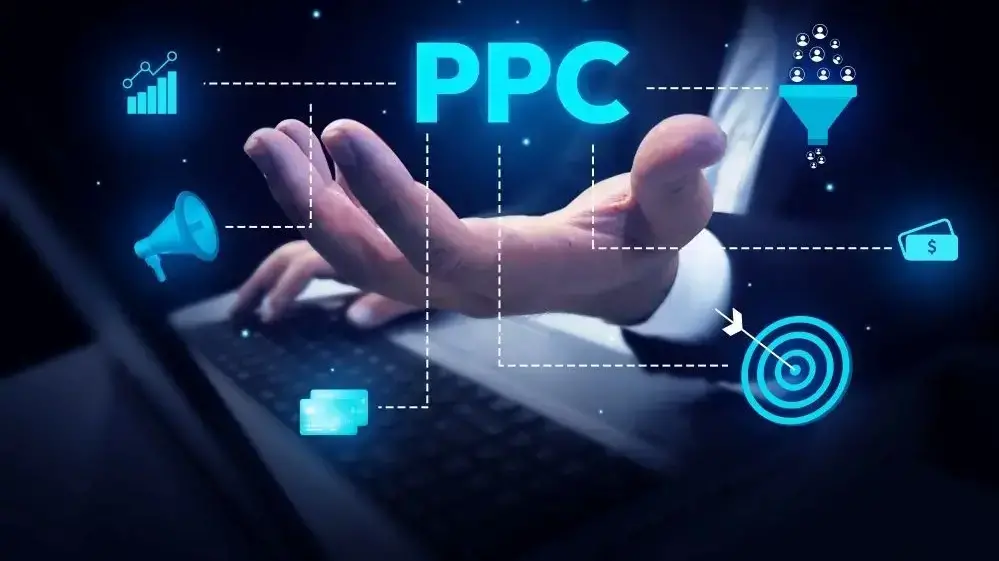Although paid search and pay-per-click (PPC) are often used interchangeably, and these two advertising methods can cross over, they aren’t entirely the same. Both of them support different business goals, meaning it’s vital that you pick the right one for your intended campaign.
Paid search and PPC have unique advantages and disadvantages, and you should adjust your budget allocation for both. To help you choose the right avenue and increase your chances of campaign success, we’ve compiled this comprehensive comparison.
What Actually Is PPC?
PPC involves any form of advertising where you pay each time someone clicks on your ad. Though commonly associated with search engines, it’s also more comprehensive than this. Alongside the likes of Google, you can use PPC advertising on each of the following platforms:
- Social media
- Blogs and websites
- YouTube videos
The cost for PPC campaigns will vary depending on numerous factors. Your niche’s competitiveness is a crucial factor, and the type of audience you serve is also important. Though commonly used as a B2B marketing strategy, you can also leverage PPC as a B2C brand.
Once someone clicks through to your website, they’ll decide whether to purchase. Part of this will depend on the quality of your offerings, but you should also have a well-functioning website. Secure hosting andast website speed isarerucial.
How PPC Works
PPC campaigns involve setting up a budget and determining how much you will pay for advertising space. You decide on the keywords for which you’ll bid; if you bid on a website, the amount you pay is determined by placement and other aspects.
You'll pay a fee each time a user clicks on your ad. This fee will be higher if you’re advertising in ultra-competitive areas.

You’re responsible for creating and uploading your ads to your preferred advertising network. You’ll design the copy, visuals, and anything else that’s needed. For this reason, you must adhere to each platform’s guidelines.
The Pros and Cons of PPC
PPC advertising can have multiple benefits, such as cost-effectiveness in some cases. However, you need to be careful of the disadvantages (e.g., fraudulent ad clicks).
Here are some of PPC’s advantages:
Pros
Cons
Cost-Effectiveness: PPC can be more effective than pay-per-view (PPV) and other advertising methods since you only pay when a user clicks on your ad.
Diverse Platforms: With PPC, you can choose where to advertise. Most social media networks have their own ad platforms, and PPC search advertising is also possible.
Easy Set-Up: Although you’ll need to put some time into your ads and their copy, setting up your campaigns is remarkably simple. You should be up and running within a few minutes.
However, you’ll also need to make note of these drawbacks:
Not Every Click Will Convert: It’s a good sign that someone’s interested in your product or service if they click on your PPC ad. However, they’re not guaranteed to convert.
Fraud Clicks: Some clicks might be fake, and if you aren’t careful, they could drain your budget.
What Is Paid Search?
Paid search is exactly as the name suggests; you’ll advertise in search engines. Though advertising on Google is the most popular option, Bing and other networks can also yield solid results. Unlike PPC, where you can mix visuals and text, paid search results are mostly text-based.
How Paid Search Works
Once you’ve chosen a search engine you wish to advertise on, you’ll then segment your campaigns and choose who you want to target. Like PPC on other platforms, you’ll bid for advertising space.
Each time a user clicks on your ad, you’ll then pay the advertising platform. Ideally, you want your ads to appear at the top of search results; if you pay for this space, they’ll show up above organic results.

It is, however, also possible to place your paid search results closer to the bottom. You’ll need to do some research to determine what best fits your needs.
One important thing to note is that paid search results often don’t appear above an article snippet. So, you might still not be the first result.
The Pros and Cons of Paid Search
Like PPC, paid search has benefits and drawbacks. One positive is that it can generate traffic much faster than SEO, but, it’s not always the best long-term option.
Reasons to use paid search include:
Pros of Paid Search
Cons of Paid Search
Fast Results: Compared to organic SEO, paid search will drive more traffic in the short term.
Brand Visibility: By appearing at the top of competitive search results, you’ll become more visible to your target audience.
Better Targeting: Paid search gives you the power to go specific on your audience targeting, which can result in better conversion rates.
However, you’ll need to understand these negatives:
Little Creative Freedom: Compared to PPC on other platforms, you have less creative freedom. You can only use text, and the copy needs to be short. Be succinct and get your message across in just a few words.
Not Ideal for Long-Term Loyalty on Its Own: Though paid search can drive instant traffic, you also need to complement this with long-term methods. It should complement organic SEO rather than completely replace it.
What Business Goals Do Paid Search and PPC Support?
Paid search and PPC can support very different business objectives. PPC on social media and similar platforms is often about generating sales. Since you’ll most often explicitly promote your products and services, your targeting needs to be on point.
Many businesses use paid search to promote their products and services, too. However, this isn’t the only reason to use it. In some cases, you might see brands promote articles they’ve written. Several brands, such as Semrush and Mailchimp, commonly do this. You’ll see these results appear as “Sponsored”. Below is one example.

How Are PPC and Paid Search Different?
To better understand how PPC and paid search differ, let’s look at them more closely in three key areas.
Audience-Building
Paid search can be a powerful tool for promoting valuable content. Sometimes, you might write excellent stuff that hasn’t yet had time to rank in Google. Rather than waiting 6-12 for search results to mature, you can exacerbate the process by getting your work in front of others.
If people like what you’ve created, they’ll likely stick around. However, you must have a clear way to keep them around. For example, you could encourage the individual to sign up for your newsletter.
Though sales are the primary goal of PPC campaigns, you can still use them to build an audience. For example, if you create quirky and interesting ads, people might be interested in your brand. Similarly, they’ll be loyal if you sell something that they like.
Generating Sales
You can use both paid search and PPC to generate sales; it depends largely on where your audience hangs out. Paid search is effective for generating sales if you specifically target keywords with a transactional user intent; people typically search for these when they want to make a purchase.
Meanwhile, PPC campaigns on social media and blogs/websites can also generate sales. It’s worth targeting people with consumer behaviors similar to what you sell so that your efforts aren’t wasted. For example, if a user likes fashion, a clothing brand might target their Instagram Story.
Brand Awareness
Before users interact with your brand, they’ll typically interact with you multiple times. Paid search is a great way to do this; you can target the top keywords in your niche to become more memorable to users. As they become more familiar with your brand, they might then click through.
PPC can also be a powerful tool for brand awareness. Though your main goal is to drive sales, users will follow your accounts if they like your values and aesthetics. So, it’s a good idea to put as much effort as possible into these.
When Should I Use Paid Search?
Paid search is an ideal option if you’re looking to speed up your search engine traffic. Organic SEO takes months before you start seeing significant results, and while you certainly should still focus on this, building an audience from the start is nice. So, if you have a budget, it’s certainly worth exploring paid search.
Paid search is also a better option if you’re a blog or sell some kind of digital service. eCommerce brands can also use paid search to promote sales and drive traffic to their website. Here, customers can decide if they like what they see and take advantage of discounted items.
When Should I Use PPC?
PPC is often a better choice for visually oriented brands. These include clothing businesses and travel agencies. The main reason why is that people usually need to see what they’re about to purchase; words are important, but they aren’t alone in and of themselves.

You can also use PPC campaigns if you’re new to advertising and want more tangible results. PPV can be effective, but since you’ll pay per view, it isn’t always the most effective option.
Summary
Paid search and PPC are quite similar and can sometimes cross paths. However, they aren’t necessarily the same. As a result, it’s worth knowing what will work best for your campaigns. Both have their time and place, and it’ll largely depend on what you’re trying to achieve. PPC is more versatile, so if you want to target specific social platforms or websites, consider using this.
Frequently Asked Questions
Are there any alternatives to paid search and PPC?
Yes! You can use other forms of paid advertising, such as pay-per-view (PPV).
Which is more expensive, paid search or PPC?
The cost will depend on where you advertise and your audience. PPC can be more cost-effective, but it’s still quite expensive if you target competitive keywords.
How can I make my paid search and PPC campaigns more effective?
Start by understanding your business objectives. Getting as detailed on your target audience as possible is also essential to ensure that you segment appropriately.
How do you measure the success of a PPC campaign?
Use metrics like conversion rates and clickthrough rates (CTRs). It’s also a good idea to monitor your success with different metrics, such as sales or newsletter signups.
What are the main benefits of using PPC over other paid methods?
PPC’s main advantage is that you only pay when someone clicks on your article. As a result, you can control your budget more effectively.

Danny is a seasoned freelance copywriter with 10+ years of managing his own websites in WordPress and other content management systems. He's an expert in eCommerce and sells his own photography prints, in addition to knowing about hosting domains having used several providers. Danny's strong writing expertise is evident in his bylines across several major tech publications, including Lifewire, MUO, and Make Tech Easier.
View all posts by Danny Maiorca




















